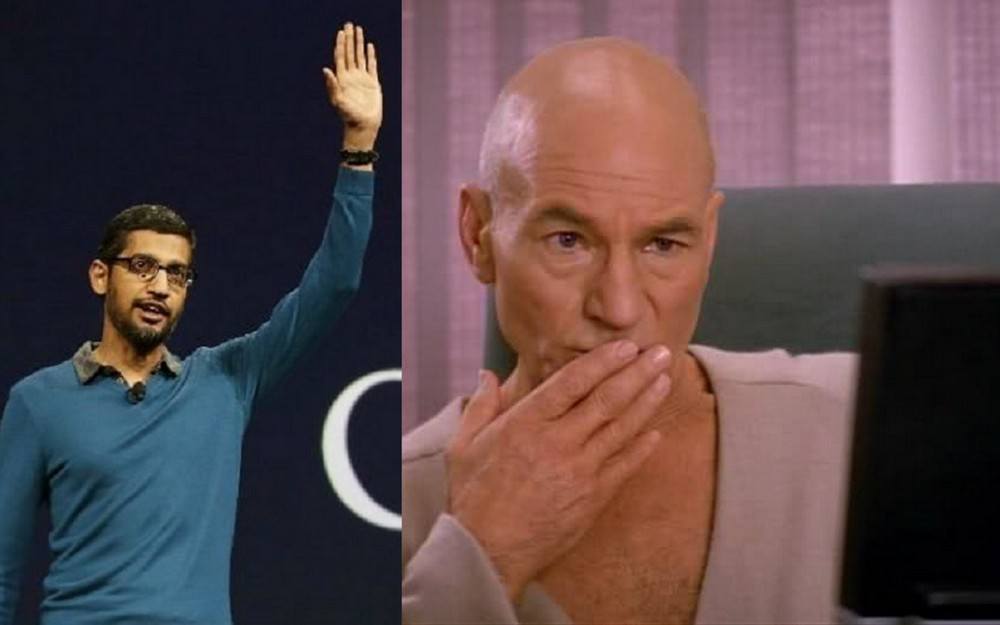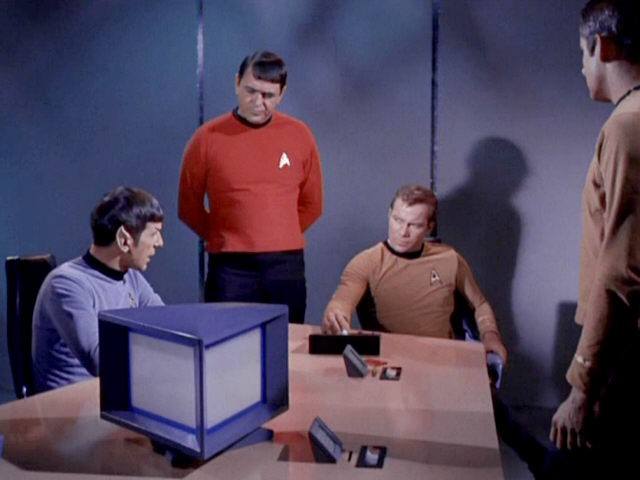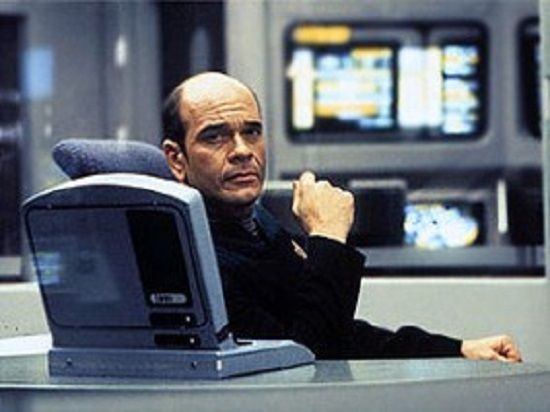
“Looking to the future, the next big step will be for the very concept of the ‘device’ to fade away… Over time, the computer itself — whatever its form factor — will be an intelligent assistant helping you through your day… We will move from mobile first to an AI first world,”
— Sundar Pichai, CEO, Google
It’s difficult to imagine the future without electronic devices. Computers will still be around in different form factors. What Sundar Pichai probably meant to say is that devices won’t necessarily be in our hands to help us like smartphones and tablets currently do now or on our desks like laptops and desktops. The computer which houses an AI will be all-around the home or office to help us in something or provide information. It’s like in Star Trek from The Original Series onwards wherein Captain Kirk and company are asking the computer for information, and the computer talks back. Technically, a node for that computer still exists, the would-be descendant of today’s Polycom teleconference unit. Such scenes have inspired Artificial Intelligence theorists to work hard in making that dream come true despite the archaic technology available at the time.
It’s been fifty years, and technology has grown leaps and bounds and has made many of the stuff seen on Star Trek come true. Cellphones emulate the mobile communicator, automatic sliding doors, tablets that function more than the PADDs on the show, USB drives are just like isolinear chips, gadgets with built-in sensors and some guy out there may have a working tricorder. What I wish we have are medical tricorders so we wouldn’t have to go through CAT scans, MRI and those embarrassing physicals. We also wouldn’t mind two tablets to cure kidney failure in place of dialysis, transporters to avoid traffic and warp drive to seek out other livable planets. Be able to go to Mars to attend school and be back on Earth for supper.
That probably would be further off than what Sundar Pichai has planned for the future which is actually starting to happen now. For example, Amazon’s Echo with the sexy-named virtual assistant Alexa acts like the desktop talking computers on the TOS Enterprise. We have the added bonus where Siri, Cortana, and Google talk back from our phones when asked for information. Just as what Mr. Pichai says that the concept of the device will disappear and that AI will soon be everywhere to assist us.
Will AI be able to take us places? Google, Apple and other companies are working on driverless cars with powerful AI and sensors that can drive a car from point A to point B using GPS. That AI can identify and avoid obstacles, follow traffic signals and will soon identify speed restrictions to avoid getting pulled over. Will AI give us the latest stock numbers and the weather? Alexa has us covered even from three rooms away just like the modern LCARS computer in the Star Trek: The Next Generation’s Enterprise-D, which is able to answer queries from anywhere in the ship. Connect Alexa to NEST and we can control the house or office temperature.
We’re not totally there yet though as even the TOS computer can understand natural language. Google plans to continue working on AI until computers probably nail everything we say, no matter who’s speaking. That AI will be present in devices all over homes and offices to control lights, temperature, security, answer our questions or show them to us using visual emitters and through sensors even keep tabs on our medical condition like Voyager’s EMH. All devices will have their own AIs or controlled by one central node. AI will become a formless mass that surrounds us, no longer limited to a little brick in our hands.
Research into AI continues led by Google and Microsoft, who released AI SDKs for developers who want to incorporate them in apps or devices. AI development is also being researched by the military which could, of course, speed up research. With the government, several tech giants with deep pockets and innovative startups, it shouldn’t be long, probably 20 years or so, for us to live a Star Trek or Jetson lifestyle. It’s funny that I think of 3D printers as early replicators. Someone needs to invent something to print hot Earl Grey tea very soon, and we’re all set.



